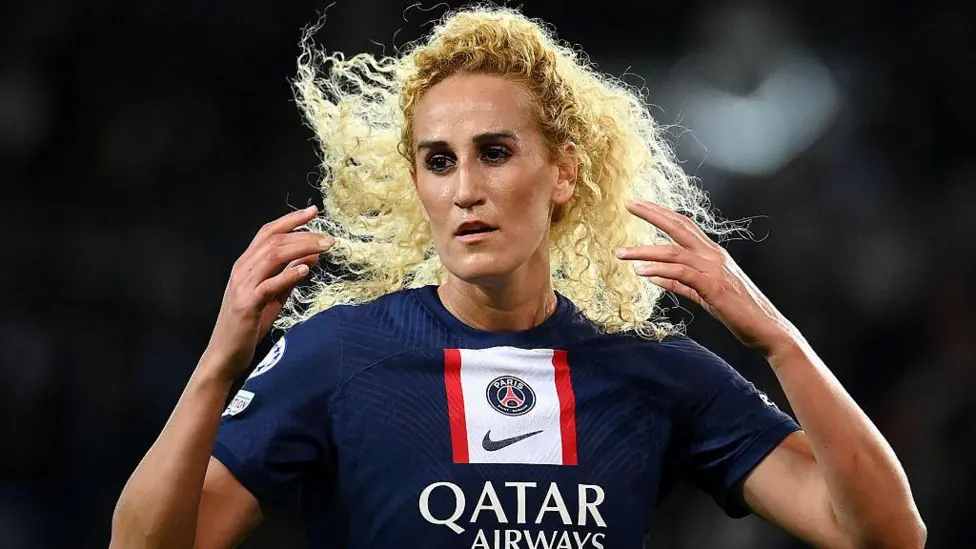Former Paris Saint-Germain and France midfielder Kheira Hamraoui has filed a €3.5m (£3.08m) claim against her former club, alleging she was pushed out and subjected to “moral harassment” in the aftermath of the shocking iron bar attack that made global headlines in 2021.
Hamraoui, now 35 and playing for Al-Hilal in Saudi Arabia, was ambushed on 4 November 2021 after a team dinner. As she was being driven home by team-mate Aminata Diallo, two masked men dragged her from the car and beat her legs repeatedly with an iron bar. Diallo, who had been competing with her for a place in midfield, was later detained and charged with orchestrating the attack, although she maintains her innocence. Six others were also charged as part of the investigation, which officially remains ongoing.
Hamraoui’s relationship with PSG deteriorated dramatically after the assault. Speaking through her lawyer Pascal-Pierre Garbarini at a Paris employment tribunal on Monday, she accused the club of failing to protect her and allowing a hostile environment to develop among players and staff. Garbarini claimed PSG forwards Marie-Antoinette Katoto and Kadidiatou Diani deliberately refused to pass to Hamraoui in matches, and that she was “ostracised everywhere — on the pitch, in the dressing room, in the stands and online”.
He argued that PSG “did nothing” to address the tense and increasingly toxic atmosphere surrounding the midfielder following the attack. According to Hamraoui, the situation caused significant emotional, psychological and professional harm, ultimately forcing her out of the club.
Her legal claim seeks damages on multiple grounds: moral harassment, the club’s failure to meet security obligations, failure to prevent harassment, moral prejudice and loss of professional opportunity. Garbarini said the ongoing distress Hamraoui suffered was a direct result of PSG’s inaction, claiming the club had effectively abandoned her at a time of personal crisis.
PSG, however, strongly contested the allegations. Club lawyer Benjamin Louzier argued that Hamraoui had not provided any medical certifications confirming harassment and had never reported such issues to PSG management or the club’s employee council, which is the standard process for such complaints. PSG’s stance is that they did not violate any duty of care and that the club cannot be held liable for interpersonal conflicts involving players.
The tribunal is expected to deliver its decision in mid-December, and the case is being closely followed across French football. Monday’s hearing drew a packed room, partly because it came immediately before another major employment dispute involving PSG — the high-profile legal battle between Kylian Mbappé and his former club.
Hamraoui’s career has spanned some of Europe’s top clubs, including Barcelona, Lyon and Saint-Étienne. She won the Champions League with Barcelona in 2021, shortly before returning to PSG for her second spell. But the violent attack and its aftermath overshadowed the remainder of her time in France.
French prosecutors concluded their investigation into the ambush in February 2025, but the judicial case itself remains officially active. Diallo, the central figure in the investigation, has consistently denied involvement, yet she remains charged along with six other individuals.
For Hamraoui, the ongoing legal process represents an attempt to reclaim both justice and dignity after several traumatic years. Her complaint paints a picture of a once-valued player left isolated by her club at her most vulnerable moment. PSG’s response, meanwhile, indicates they believe she has not met the burden of proof required to accuse the institution of wrongdoing.
The tribunal’s verdict will determine whether PSG bear responsibility for the breakdown in the midfielder’s working environment — and whether one of Europe’s biggest clubs failed in its duty to protect a player at the centre of one of French football’s most shocking scandals.



